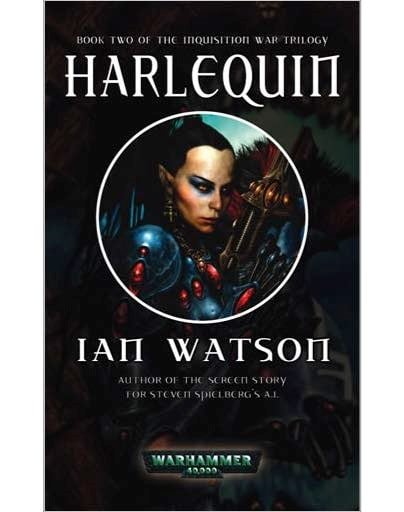

The first three action-packed adventures of Commissar Ciaphas Cain, and his malodorous aide Jurgen are collected together into one amazing volume.

There is an interesting commonality in both Warhammer 40k and Dune that originates in modern (and ancient) religion. there are some great things ahead for 40k. But when the tale comes from the serpent’s mouth, where does the deception end and the truth begin? Home. Such are his gifts of secrecy and deceit that even his rediscovery has remained an enigma – until now.
#HOW MANY WARHAMMER BOOKS ARE THERE PLUS#
More Warhammer: Our guide to the Warhammer Plus service Warhammer 40k takes place in the 41st millennium, far into the distant future. 40k lore is not something i’m quite familiar with either.

Astropaths can see things through the warp that no one would be able to tell, such as the fate of a planet thousands of light years away, and they can be used as a kind of communication device when they’re not navigating a ship through the Warp. In terms of different facets and events, yes, it's an absolute certainty. Re: Warhammer 40k Lore : Observatorium Imperialis. Are a fan of automatons and cyborgs in your sci-fi and Warhammer lore. The central conflicts of the book all revolve around the spice mélange, which has many uses but which essentially allows the galaxy-wide empire to exist in the way that it does. It seems to me that the Emperor could very well be dead without making much difference to how the society functions. There are ~26 Warhammer 40K armies to choose from. I think you are getting caught up on the idea that 40K is a story instead of an endless sci-fi setting for multiple media platforms. Games Workshop Christmas Boxes: What’s the Best Value? And yes, they originally started out (warhammer & 40k) as tabletop games. A year and a half ago, Games Workshop put out the statement that “Warhammer is for Everyone”, including the warning that if people wanted to continue to hate and. Although I have been trying to learn as much as I can by reading the books, including the Horus Heresy among others, and watching lore channels on YouTube, I can safely say that there are likely to be many fans of the 40k universe who know far more about 40K than I do. Each individual standard classification has its own troubles, and seemingly absolute data like author and title are actually very nebulous and thus not particularly useful.In each episode we talk about a specific aspect of the universe, sharing known information followed by a discussion portion. Google put up a blog post today that illustrates just how tricky it has been to find out the answer to such a simple question, and it’s oddly fascinating.įirst of all, what defines a “book”? Separate editions count as separate books, right? How different do two editions have to be to count as two books? What about compilations of existing works? You can’t even rely on the established systems, like ISBN: ISBN is a fairly recent system, only adopted widely in the 1970s, and it’s distinctly more accurate when documenting books from the Western world. If you’re going to digitize the world’s books, it makes sense to figure out how many books there actually are–but as it turns out, that’s a whole can of trouble in itself. One of those basic obstacles is at the core of the entire project. That’s not even taking into consideration some of the most basic obstacles Google‘s had to deal with. Working alongside disparate library systems, governments, private collections, universities, and more has proven a challenge, one that’s encountered all kinds of resistance. Google’s Books project, a six-year-old task to digitize as many of the world’s books as possible, is an incredibly difficult and ambitious undertaking.


 0 kommentar(er)
0 kommentar(er)
